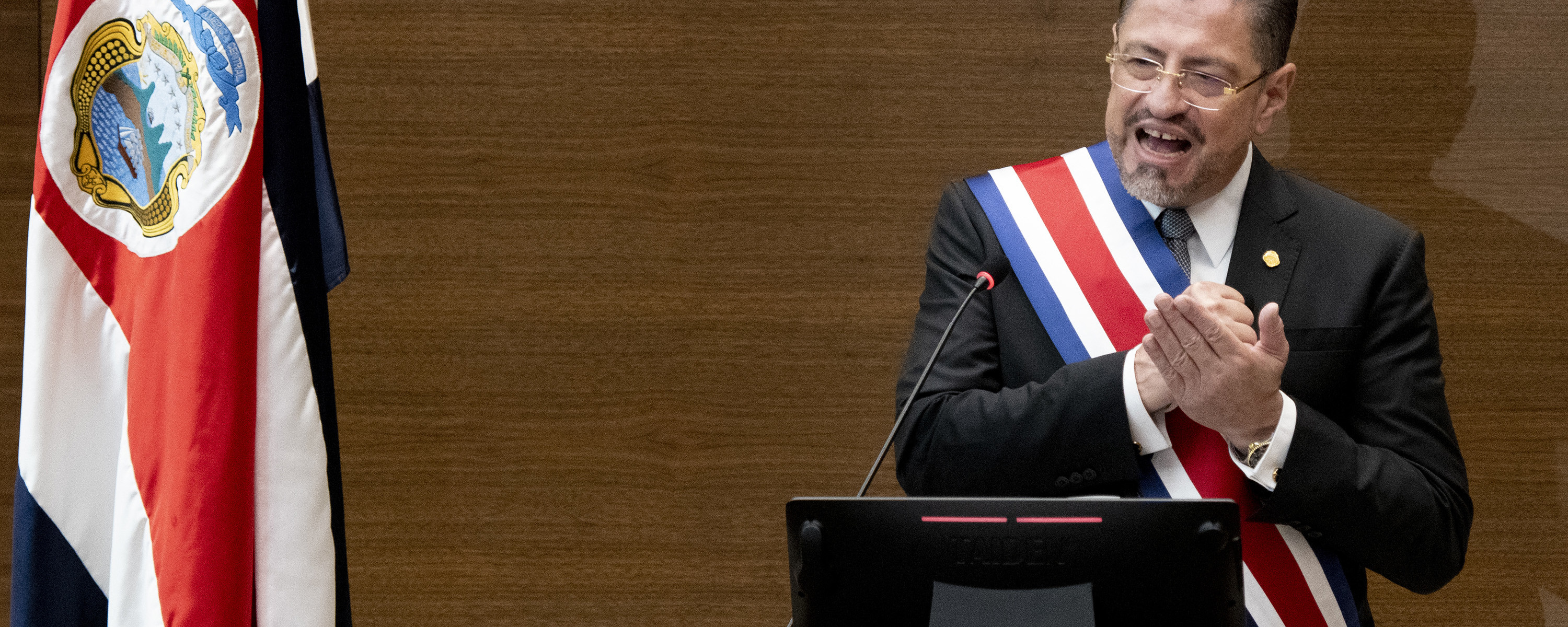For almost a century, Costa Rica has been the most progressive state in Central America. Its 1949 constitution speaks of the state’s role in the “distribution of wealth” and eliminated the army. The country was on the vanguard of environmental protection when the rest of the continent dreamed of industrialization. In 1970, as the rest of Central America lived under military dictatorships, Costa Rica opened the door for abortion in some cases.
That’s why it was surprising that draft regulations in Costa Rica leaked in late February would curb access to therapeutic abortion to protect carriers’ lives and health. The draft requires the “name, ID number, and signature of the spouse or father of the nasciturus,” requires increased medical opinions, and stresses “the ethical consideration of saving both lives, always seeking to carry the fetus to extrauterine viability.”
The draft runs afoul of article 121 of the Costa Rican Penal Code, according to human rights litigator Larissa Arroyo Navarrete, as well as the 2012 Inter-American Court of Human Rights ruling in Artavia Murillo v Costa Rica in vitro fertilization case that “an embryo cannot be understood as a person.” She told El Faro English: “Artavia Murillo clearly determined that there is no equivalence between two lives at risk.”
To be clear, in Costa Rica abortion is a criminal offense, including in cases of rape or incest. But the 1970 Penal Code —still on the books— granted a narrow window for “unpunished abortion” to protect the “life or health” of the carrier, after exhausting alternatives, “with the consent of the woman,” and performed by “a doctor or authorized obstetrician.”
The exception became a wedge-driving issue in recent electoral politics. It’s no coincidence that ultraconservative Evangelical singer Fabricio Alvarado came in second and third in the 2018 and 2022 elections, respectively. After taking office, Chaves promised the Episcopal Conference that he would revise a therapeutic abortion order issued in 2019.
His predecessor, Carlos Alvarado, had created regulations with the goal of assuring that medical centers comply with the 1970 code, as a solution for decades of denials of the procedure under “popular belief, even among some doctors, that abortion was [completely] prohibited,” said Arroyo, adding that the order was also a response to a vicious debate over whether “health” of the carrier includes mental health.
Arroyo argues that Chaves’ stance isn’t set in stone. “If we were in Nicaragua, they couldn’t care less about international recommendations,” she said. “But the president wants to retain the image of a country respectful of human rights, an example to the region.”
Over a decade without the pill
The only sitting Central American administration taking timid steps toward expanding access to reproductive healthcare is that of President Xiomara Castro in Honduras. On International Women’s Day, she signed an executive order approving the sale of day-after emergency contraception pills, as she had promised in her 2021 campaign.
The National Party government in Honduras outlawed the morning-after pill on the false assertion that it causes abortion, months after the 2009 coup d’état that removed Castro’s husband-shadow leader, Mel Zelaya, from office.
But the political debate in Honduras has hardly advanced past the question. Health Minister José Manuel Matheu —who co-signed the decree— promised conservatives: “Women who do not suffer sexual violence must learn to demand that men use condoms, and that there are other methods of contraception. We will not promote the day-after pill as contraception so that there is sexual debauchery.”
Sandy Cabrera, 23, is the spokesperson for Hablemos lo que es, a campaign started in 2018 by feminists to campaign for the pill. Cabrera noted that the WHO introduced it to the country in 1999, as essential medication to prevent teen pregnancy from rape after Hurricane Mitch. Feminists see the new measure as restoring a once-granted right.
Cabrera said the conservative framing of the pill campaign caters to a “conservative, machista, patriarchal, and poor” society. “We can’t expect much from public officials nor Honduran society without first informing the public. And that’s why we’re also fighting for holistic sexual education,” she told El Faro English.
Until 2019, Honduras and Costa Rica were the only two Central American nations holding out on legalizing emergency contraception, or “morning-after pills.” In May 2021, in his final year of office, Alvarado announced that the latter nation’s social security agency would make the pill available to all women free of charge.
“No Next Roe” campaign
But even legalization and government backing do not guarantee broad access. Not all Central American pharmacies sell the pills, while many do so under the counter after pulling them from back rooms. Others do not even sell condoms.
On last year’s International Women’s Day, the Giammattei administration in Guatemala sent the opposite message as Honduras, declaring the country the “pro-life capital of Iberoamerica.” In lockstep, Congress increased penalties for abortion —permitted solely for imminent risks to life— to up to 24 years in prison.
El Salvador, Honduras, and Nicaragua, on the other hand, have lived under total abortion bans for years. As we previewed in our January 26 newsletter, this month the Inter-American Court will hear arguments on whether El Salvador’s restrictions infringed on a woman named Beatriz’s rights, including to life — she died in a traffic accident in 2017 after facing forced pregnancy-related health complications.
The case will set regional precedent for countries who have signed the American Convention on Human Rights.
“Anti-rights groups have launched a campaign called “No Next Roe,” equating Roe v Wade to the Beatriz case,” historic Salvadoran feminist leader Morena Herrera —who just won the French government’s Simone Veil Prize for her work to decriminalize abortion— said in an interview with El Faro English. “Beatriz’s mother [only] wants her daughter’s request that this not happen to other women to be heard.”
This article first appeared in the March 15 edition of the El Faro English newsletter. Subscribe here to tune into Central America.

